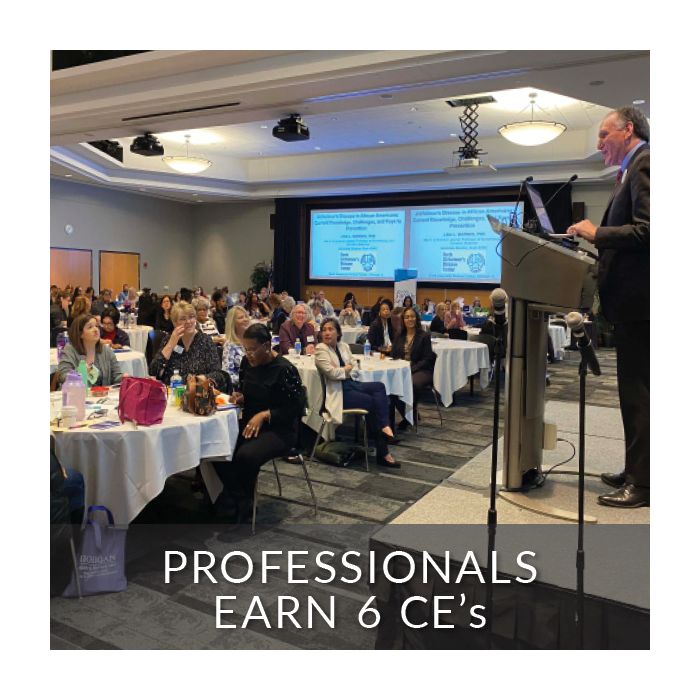Issues in Aging 2024 - Professionals (EARN 6CEs)
Issues in Aging 2024 – Professional Registration (6 Credits)
Navigating Challenges in Aging
IN-PERSON EVENT!
COST: $65
LOCATION: VisTaTech Center Schoolcraft College
For large group registration and questions, please contact Donna MacDonald at donnamacdonald@wayne.edu or 248-719-0640
6 CREDITS for Social Workers, Nurses, Occupational Therapists, Physical Therapists, Case Managers, Educators, OTAs, PTAs
Issues in Aging 2024
Navigating Challenges in Aging
Monday April 29, 8:00 am - 3:45 pm
FLYER
6 CREDITS for Social Workers, Nurses, Occupational Therapists, Physical Therapists, Case Managers, Educators, OTAs, PTAs
COST
$65 for Professionals (6 CEs)
All Students, Family Caregivers and older adults not recieving credit REGISTER HERE.
LOCATION
VisTaTech Center at Schoolcraft College 18600 Haggerty Rd, Livonia, MI 48152
AGENDA
8:00 am – Light Breakfast, Vendor Tables
8:30 am – Medication Management: One Too Many Prescriptions
Candice Garwood, PharmD, FCCP, BCPS, BCACP, Clinical Professor, College of Pharmacy and Health Sciences, Wayne State University
Polypharmacy in geriatric patients refers to the concurrent use of multiple medications by these individuals. This is a common concern as it can lead to various issues such as increased risk of adverse drug reactions, drug interactions, and medication non-adherence. It is important for healthcare providers to regularly review the medication regimen of older adults to ensure the appropriate and safe use of medications.
Objectives:
1. Discuss polypharmacy in geriatric patients
2. Develop strategies to reconcile medication therapies and minimize adverse drug events
3. Identify and list resources to optimize patient safety and medication use
10:00 am – Break, Networking, Vendor Tables
10:30 am – Partnering with Families of Hospitalized Persons with Dementia: Lessons Learned
Marie Boltz, PhD, GNP-BC, FGSA, FAAN – Eberly Endowed Professor, College of Nursing, Pennsylvania State University
Partnering with families of hospitalized persons with dementia is crucial for providing comprehensive and person-centered care. Through our experience, we have learned that open communication, education, and involving families in decision-making can greatly improve the well-being of the patient and enhance their overall hospital experience.
Objectives:
1. Discuss the critical role of family in the life of the person living with dementia.
2. Describe the challenges and rewards for family carers.
3. Describe the state of the science related to interventions for family carers of persons living with dementia.
4. Discuss the family carers’ relationship with the health care system, including acute care.
5. Discuss emerging issues in research, practice, and policy affecting the family living with dementia.
Noon – Lunch
12:45 pm – CAPABLE: An Interdisciplinary Approach to Aging in Place
Amanda Goodenow, MS, OTR/L, Strategic Partnership Coordinator, and Tricia Ford, BA, VP of Operations, CAPABLE National Center, Denver, CO
CAPABLE is an interdisciplinary program aimed at supporting older adults to comfortably stay in their homes. It combines expertise in occupational therapy, nursing, and home repair services to address the unique needs and challenges faced by older adults. By providing holistic support, CAPABLE promotes independence and enhances the overall quality of life for older adults aging in place.
Objectives:
1. Describe the evidence that supports CAPABLE
2. Describe the program components and the team
3. Describe how CAPABLE addresses equity and promotes self-efficacy
2:15 pm – Structural Insights into the Neuropathology of Frontotemporal Dementia and ALS
Sami Barmada, MD, PhD – Welch Research Professor and Associate Professor of Neurology, University of Michigan; Director of Michigan Brain Bank
Studies have shown that in frontotemporal dementia (FTD) and amyotrophic lateral sclerosis (ALS), there is a common pattern of cortical atrophy, particularly in the frontal and temporal lobes. Imaging techniques have detected abnormal protein aggregates in specific brain regions, further linking the structural changes to the neuropathology of these diseases. Understanding the structural aspects of FTD and ALS provides valuable insights into their pathogenesis and has potential to guide the development of targeted therapies.
Objectives:
1. To describe the unique neuropathology of frontotemporal dementia (FTD) and amyotrophic lateral sclerosis (ALS), and the clues this provides to disease pathogenesis
2. To illustrate how this pathology can be recapitulated in a laboratory environment, and what this tells us about the origins of disease
3. To clarify the mechanisms contributing to FTD/ALS pathology, and new approaches to blocking neurodegeneration.
3:45 pm – Raffle Drawings, Closing
The IOG would like to thank the following organizations for their support.
Premier Partner: Alzheimer's Association of Michigan
Supporters:
Avalon Senior Living Communities
BrightStar Care
Center for Financial Planning
CorsoCare
Heart to Heart Hospice
Henry Ford Health Systems
Jewish Family Services
PACE of Southeast Michigan
Presbyterian Villages of Michigan
Senior Caregiver Resource Network (SACRN)
Waltonwood Senior Communities
CREDITS
NURSING: This nursing continuing professional development activity was approved by the Ohio Nurses Association, an accredited approver by the American Nurses Credentialing Center’s Commission on Accreditation.(OBN-001-91)
SOCIAL WORK: The Institute of Gerontology, Wayne State University, is an approved provider with the Michigan Social Work Continuing Education Collaborative. Approved Provider Number: MICEC-0066.
Certificate to be issued after attendance at 100% of presentations.
For more info or to exhibit at the conference, please contact Donna MacDonald at 313-664-2605 or e-mail donnamacdonald@wayne.edu.

